LizardFS
LizardFS is an open-source distributed file system designed for large storage environments like media repositories and big data analytics. It splits files into chunks and distributes them across commodity hardware for redundancy and scalability.
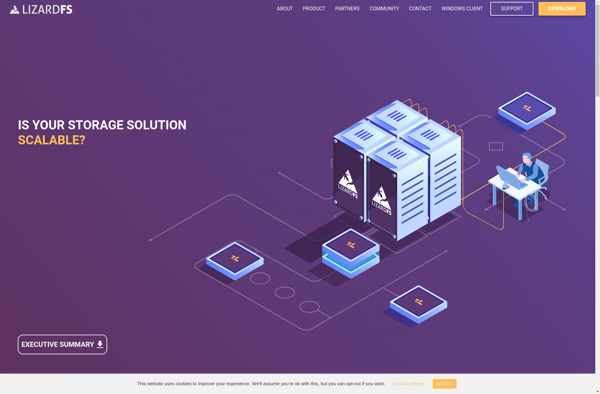
LizardFS: Open-Source Distributed File System
An open-source distributed file system designed for large storage environments, offering redundancy and scalability through chunking and commodity hardware distribution.
What is LizardFS?
LizardFS is an open-source distributed file system designed for very large storage environments that need to scale to handle exponentially growing amounts of unstructured data. It is optimized to store big data such as multimedia files, VM images, Docker containers, log files, and more.
Some key capabilities and benefits of LizardFS include:
- Automatic file replication and self-healing - Files are split into chunks and copies of each chunk are stored on multiple drives to protect against hardware failures.
- Software-defined scalability - You can scale storage capacity and performance linearly and limitlessly by adding more commodity servers or hard drives.
- Geo-replication - Supports creating geo-distributed deployments across multiple data centers for data locality and protection against site failures.
- Optimized for big files - Its architecture delivers high throughput for large files and media streaming workloads.
- Cost-effective - LizardFS minimizes hardware costs by leveraging any commodity server and drive combinations rather than expensive, proprietary storage.
With its decentralized design, limitless scalability, and hardware cost efficiency, LizardFS is well-suited for building massive yet affordable storage for unstructured data at petabyte scale and beyond.
LizardFS Features
Features
- Distributed file system
- Filesystem sharding
- Erasure coding
- No single point of failure
- Scalable metadata management
- Self-healing capabilities
- Strong consistency model
- POSIX compatibility
Pricing
- Open Source
Pros
Highly scalable
Fault tolerant
High throughput
Low latency
Efficient disk usage
Easy to deploy and manage
Open source with community support
Cons
Complex architecture
Steep learning curve
Limited ecosystem compared to other filesystems
Requires dedicated hardware/resources
Not ideal for small deployments
Official Links
Reviews & Ratings
Login to ReviewThe Best LizardFS Alternatives
Top File Sharing and Distributed File Systems and other similar apps like LizardFS
Ceph
Ceph is an open source, software-defined storage platform designed for scalability, reliability, and cost-effectiveness. Here are some key things to know about Ceph:Provides block, object, and file storage in one unified system - Ceph supports traditional block device storage as well as object storage and scale-out file storage, allowing one...
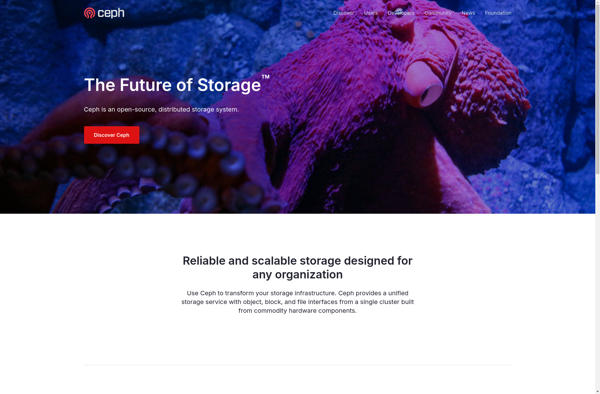
GlusterFS
GlusterFS is an open source, distributed file system designed to handle large data sets and high traffic workloads. It aggregates disk storage resources from multiple servers into a single global namespace that can scale out to store petabytes of data.Some key features of GlusterFS include:Linear scalability - GlusterFS utilizes a...

XtreemFS
XtreemFS is an open-source distributed file system designed specifically for high availability, scalability and performance to store and access files across clusters of commodity servers. It provides interfaces for POSIX and HTTP access, allowing existing applications to use XtreemFS without any changes.Some key features of XtreemFS include:Scales to thousands of...
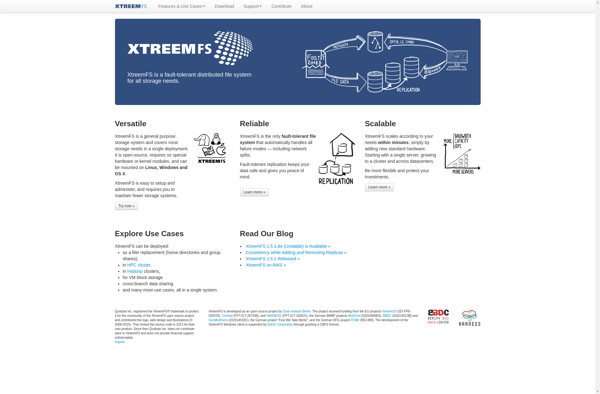
WekaFS
WekaFS is a parallel file system designed specifically to address the storage challenges of artificial intelligence, machine learning, and deep learning workloads. It delivers high performance and scalability for data-intensive workloads that access large numbers of small files.Key capabilities and benefits of WekaFS include:High throughput and IOPS specifically for small...

BeeGFS
BeeGFS (short for 'Bee' Grid File System) is an open-source parallel file system designed for high-performance computing (HPC) environments. It runs on Linux clusters and helps improve I/O performance by distributing file data over multiple servers.Some key characteristics of BeeGFS:Designed for large-scale clusters and single Linux workstationsStripes data across multiple...

Lustre
Lustre is an open-source, parallel file system designed for high-performance computing environments that require extremely fast I/O across large storage volumes. It delivers parallel access to files across clustered storage for supercomputing, machine learning, and other big data applications that need to process vast datasets efficiently.A key advantage of Lustre...

StorPool
StorPool is a software-defined block storage platform optimized for storage performance, efficiency, and high availability. It is designed to deliver predictable low latency, high IOPS, and increased storage efficiency for demanding workloads.StorPool uses a distributed architecture and runs on standard hardware, eliminating proprietary hardware lock-in. It utilizes advanced data placement...
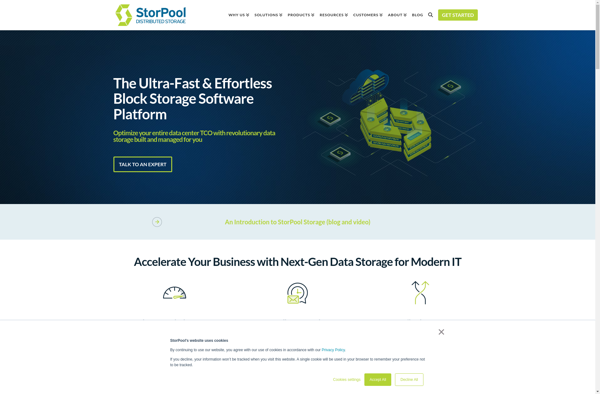
Seaweed FS
SeaweedFS is an open-source, distributed file system designed for storing and serving billions of large files fast and efficiently. It spreads files over many servers, allowing for automatic scaling and parallel streaming of data.Some key features and benefits of SeaweedFS include:Automatic scaling - new servers can be added easily to...
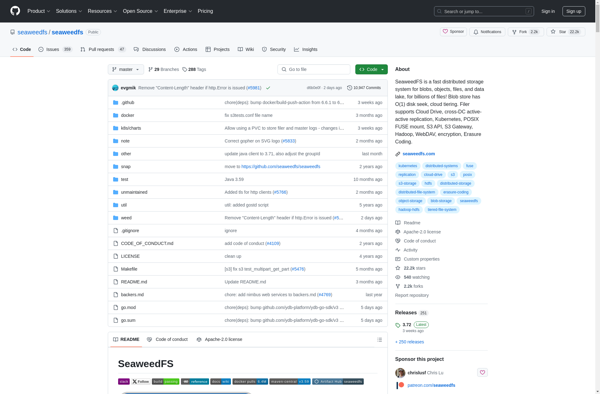
MooseFS
MooseFS is an open-source distributed file system optimized for storing very large data sets while providing high throughput access to the data. Unlike traditional file servers which store files on a single machine, MooseFS splits files into chunks and distributes them across multiple commodity servers. This allows it to scale...
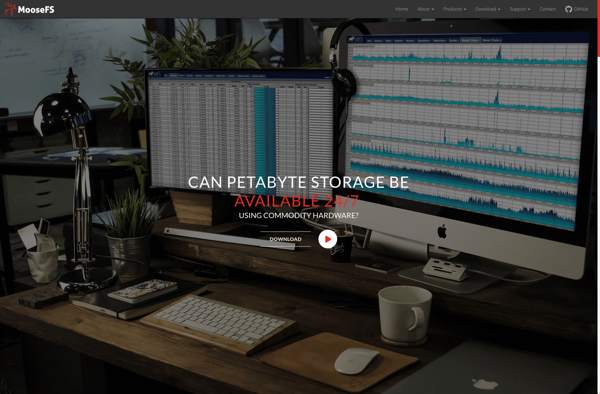
Quobyte
Quobyte is an open-source software-based distributed file system that provides scalable and fault-tolerant storage for containers, virtual machines, and bare metal servers. It allows organizations to build a high-performance storage cluster out of commodity hardware like off-the-shelf servers or cloud instances.Some key capabilities and benefits of Quobyte include:Scalability - Quobyte...
